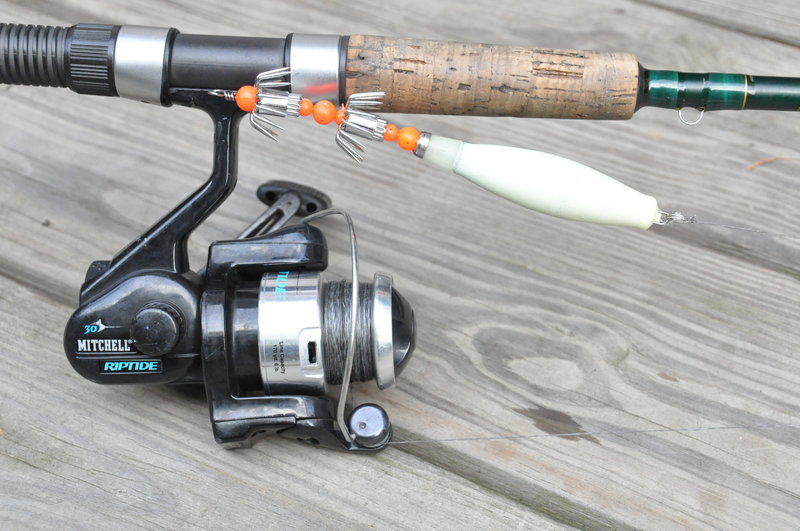It’s been three nights and I’ve struck out each night. In baseball I’d be headed to the bench. In fishing, well, so what? I’m headed right back out again.
Three different times this year I have tried my luck catching squid. I am 0-for-August.
Yet I keep hearing that the squid are here. The local tackle shop ordered more than 100 squid jigs earlier this summer after selling out its first order. Boat fishermen are inadvertently catching them on mackerel sabiki rigs. Friends are seeing squid at docks and in coves. The only squid I’ve seen were coughed up by cod and haddock, or on a restaurant platter.
For me it’s been a little bit like winter smelt fishing, where often I hear “you should have been here last tide.”
While each year there are reports of successful squid jiggers early in the season, this summer anglers are catching squid like no other.
Explanations as to why vary. Certainly it was an early spring. Since early June, it’s been relatively dry.
Winds and currents don’t seem to be as strong, either, allowing ocean temperatures to warm more than usual. In fact, temperatures offshore at Jeffreys Ledge last week were in the high 60s and sharks were abundant.
Squid love the warmer water. In the winter, they are found offshore in the deeper water that is spared the freezing coastal temperatures. As the water warms, they begin their migration inshore.
Squid are mollusks, related to clams, oysters and scallops. But squid are different in that they lack an external shell. They do, however, have an internal shell, and that’s a transparent support structure called a pen inside their mantle or body.
The Gulf of Maine is home to two squid species, long-finned squid that grow up to 17 inches in length, and boreal or short-finned squid that are up to 9 inches in length. I wish I could tell you which type I’ve been catching but well, you know the story.
Squid move along their way by drawing water into their mantle cavity and expelling it out a siphon at the base of their mantle. This quickly propels them through the water.
As is well known, squid also possess an ink sac, which they excrete for a magic act that allows them to disappear from many predators.
Squid use their two long tentacles and eight shorter arms to capture food and transfer it to their mouth, which consists of a hard beak at the central base of their head. Adult squid feed on small fish such as herring, mackerel, hake and menhaden, among others. But just about every type of adult fish feast on squid, making squid a vital link in the Gulf of Maine ecosystem.
Most squid fisherman are having luck at night. Inshore squid are drawn to bright lights, and anglers using squid jigs on lobster wharves, town docks and marina piers are having luck. Tide doesn’t seem to matter, but being at the right place at the right time does. Boat anglers and some savvy dock anglers have used submersible lights with great success.
Squid jigs, a brightly colored, sometimes glowing torpedo-shaped jig that instead of hook seems has two rings of upturned needles, are working for most folks. I am going to try some different colors in different locations in hopes of finding the right combination. This summer you can find them at most tackle shops if they aren’t sold out.
Earlier this summer, I was told that you could catch them on any dock with a light. After I proved that wrong, I have been pointed to docks and wharves in Portland, Harpswell and Boothbay. I have heard whisperings of other locations, which I plan to keep secret but may share in success.
So my next squidding sojourn will be later this week, and the cod, mackerel, blues and bass will have to wait, because what began as a curiosity has now turned into a quest.
A quest that can only successfully end with a catch of calamari.
Mark Latti is a Registered Maine Guide, and the Landowner Relations/ Recreational Access Coordinator for the Department of Inland Fisheries and Wildlife.
Send questions/comments to the editors.



Success. Please wait for the page to reload. If the page does not reload within 5 seconds, please refresh the page.
Enter your email and password to access comments.
Hi, to comment on stories you must . This profile is in addition to your subscription and website login.
Already have a commenting profile? .
Invalid username/password.
Please check your email to confirm and complete your registration.
Only subscribers are eligible to post comments. Please subscribe or login first for digital access. Here’s why.
Use the form below to reset your password. When you've submitted your account email, we will send an email with a reset code.